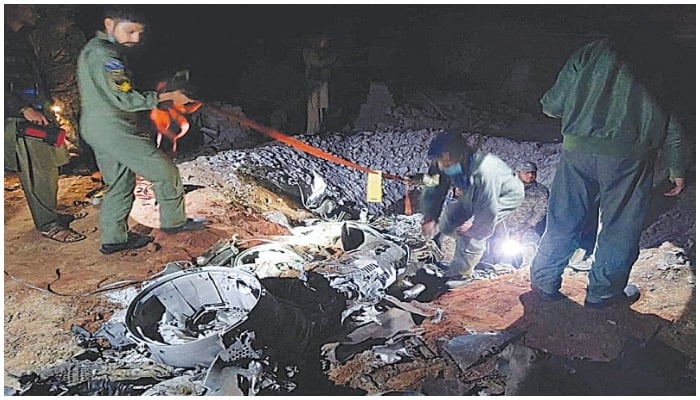The missile misfire: Time for India and Pakistan to set down rules
To erase the current suspicion first and foremost both Pakistan and India need to carry out a joint investigation into the matter
April 11, 2022

Every country should have complete and exclusive sovereignty over the air space above its territory, as encapsulated in the Latin maxim: cujus est solum ejus est usque ad coelumet ad infernos (he who owns the land owns what is above and below it).
However, when incidents, such as the recent crashing of an Indian BrahMos supersonic cruise missile in Pakistan’s region of Mian Channu, take place it raises concerns about the national security of the country and brings into light questions such as: is there an agreement between India and Pakistan over the testing of missiles? If so, does it contain any clause regarding the mechanisms that need to be adopted in case of a misfire?
Pakistan and India entered into the agreement, Pre-notification of Flight Testing of Ballistic Missiles, on October 3, 2005, which aimed at adopting measures to prevent misunderstandings and promote peace and security between the countries.
Article 1 of the agreement states that each country shall provide to the other an advance notification of the flight test it intends to undertake. Whereas Article 2 adds that each party shall notify the other party, no less than three days in advance of the commencement of a five-day launch window within which it intends to undertake flight tests.
Moreover, Article 6 requires each party to ensure that the planned trajectory of the ballistic missile, being flight tested, shall not cross the international boundary of the line of control between India and Pakistan.
There are, however, certain lacunas in this agreement.
Firstly, it applies to ballistic missiles and not cruise missiles. Secondly, it does not provide for an accidental launch.
Nonetheless, there is a hotline between the director-general military relations of Pakistan and India, but what’s surprising is that even this option was not considered during the accidental misfire.
Internationally, the acceptable conduct is that the other party has to be alerted at the first instance. As was the case in 2016, when Taiwan’s navy accidentally launched a supersonic anti-ship missile from a naval base and hit a fishing boat off Phengu Island, killing one person.
Taiwan’s navy then immediately reported the incident to the Island’s defence ministry.
While India claims to take the matter seriously no efforts were made to inform Pakistan. In fact, the whole incident was acknowledged two days after its occurrence.
Given the tumultuous nature of relations between both the countries and the casual approach towards an issue that was a source of escalation to passenger flights, as well as a risk to human life, gives room to more questions like was it actually a mistake or was it provoked by other ulterior motives?
It is rare for countries to respond with composure in such situations. In fact, in some instances, the world has survived a potential war merely by a single stroke of luck.
One such example is the collaboration between American and Norwegian scientists to launch a scientific rocket Black Brant XII to study the northern lights. The Norwegian foreign ministry was asked to notify neighbouring countries but due to some bureaucratic error, the news never reached the Russian federation, as a result of which the Russian nuclear forces were put on high alert.
Fortunately, the Soviet Naval officer Vasili Arkhipov took the decision to refuse to fire a nuclear missile and decided to proceed with informing the higher officials first.
Boris Yelstin was then presented with the nuclear briefcase and it was only after 24 hours that Yelstin was able to see that a nuclear attack was not underway.
Had it not been for the prudence of Naval officer Vasili Arkhipov the world might not have been the same today.
Hence, to erase the current suspicion first and foremost both Pakistan and India need to carry out a joint investigation.
Apart from that, both the countries should draft an agreement explaining the conduct and strategies that shall be adopted in case such an incident takes place again.
Nafees works as a research associate at the Center for Law and Security in Islamabad.











